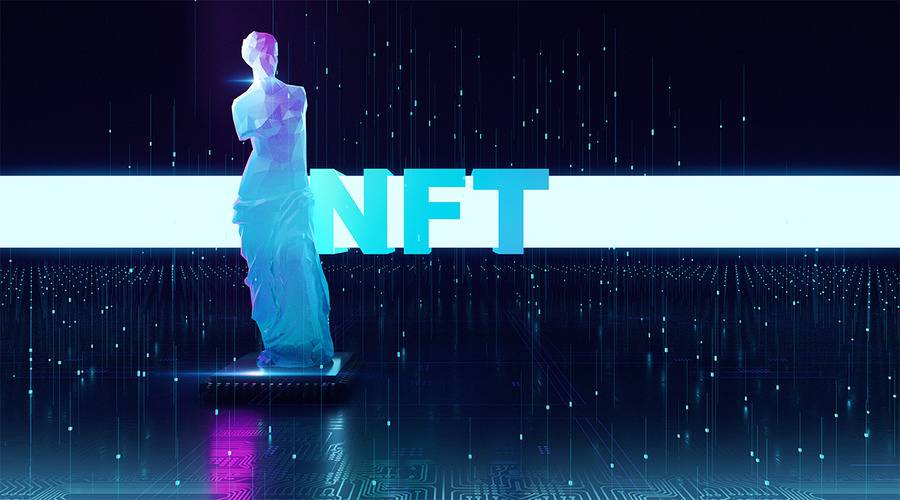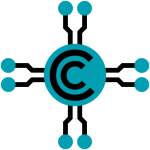NFTs and Genetic Data: Ethical Considerations in Tokenizing Personal Genomics

In recent years, the world of non-fungible tokens (NFTs) has gained significant attention and popularity. NFTs are unique digital assets that are stored on a blockchain, providing proof of ownership and authenticity. While NFTs have primarily been associated with art and collectibles, there is growing interest in tokenizing personal genomics data. This article explores the ethical considerations surrounding the intersection of NFTs and genetic data, delving into privacy concerns, consent, security, and potential benefits.
The advent of non-fungible tokens (NFTs) has revolutionized the way we perceive and interact with digital assets. From art and collectibles to virtual real estate, NFTs have provided a means for individuals to own and trade unique digital items. However, the recent interest in tokenizing personal genomics data through NFTs raises important ethical considerations that must be addressed.
Understanding NFTs
What are NFTs?
NFTs, or non-fungible tokens, are digital assets that represent ownership or proof of authenticity of a unique item or piece of content. Unlike cryptocurrencies such as Bitcoin or Ethereum, which are fungible and can be exchanged on a one-to-one basis, NFTs are indivisible and cannot be replicated.
How do NFTs work?
NFTs are built on blockchain technology, typically utilizing smart contracts to establish ownership and record transactions. The blockchain serves as a decentralized ledger, ensuring transparency and immutability of ownership records. Each NFT contains metadata that describes its unique attributes, such as the creator, date of creation, and any associated content.
Genetic Data and Personal Genomics
What is Genetic Data?
Genetic data refers to the information encoded within an individual’s DNA. It contains valuable insights into a person’s ancestry, predispositions to certain diseases, and other genetic traits. With advancements in genomic sequencing technologies, it has become easier and more affordable to obtain and analyze genetic data.
The Significance of Personal Genomics
Personal genomics empowers individuals to learn more about their genetic makeup and make informed decisions regarding their health and lifestyle. It has the potential to revolutionize healthcare enabling personalized treatments and interventions based on an individual’s unique genetic profile.
Tokenizing Genetic Data
What Does It Mean To Tokenize Genetic Data?
Tokenizing genetic data involves creating an NFT that represents an individual’s genomic information. This token can then be bought, sold, or traded on various NFT marketplaces. Tokenization offers the opportunity to monetize genetic data while retaining ownership and control.
Potential Benefits of Tokenization
Tokenization of genetic data can provide financial incentives for individuals to share their information for research purposes. It can also facilitate collaborations between researchers and individuals, leading to advancements in personalized medicine and scientific discoveries.
Privacy Concerns
The Sensitivity of Genetic Data
Genetic data is highly personal and sensitive. It contains intimate details about an individual’s health, predispositions, and even familial relationships. Therefore, robust privacy measures must be in place to safeguard this information from unauthorized access or misuse.
Risks of Unauthorized Access
Tokenizing genetic data introduces new security risks. Unauthorized access to such information could lead to discrimination, targeted marketing, or even genetic blackmail. Striking a balance between data accessibility and privacy protection is crucial.

Informed Consent
The Importance of Informed Consent
Obtaining informed consent is a cornerstone of ethical research and data sharing practices. Individuals must have a clear understanding of how their genetic data will be used, tokenized, and potentially shared with others. Informed consent ensures autonomy and respect for individuals’ choices.
Challenges in Obtaining Consent for NFT Tokenization
Obtaining informed consent for tokenizing genetic data through NFTs presents unique challenges. Individuals need to fully comprehend the implications and potential risks associated with sharing their data as an NFT. Educating and empowering individuals to make informed decisions is essential.
Data Security
Protecting Genetic Data from Breaches
Data security is paramount when dealing with personal genomic information. Robust encryption techniques and secure storage systems must be employed to prevent unauthorized access or data breaches. Blockchain technology can enhance data security adding an additional layer of transparency and integrity.
Encryption and Blockchain Technology
By encrypting genetic data and storing it on a blockchain, individuals can maintain control over their information while benefiting from the security features offered distributed ledger technology. Blockchain’s decentralized nature reduces the risk of single-point failures and unauthorized tampering.
Ownership and Control
Who Owns the Tokenized Genetic Data?
Tokenizing genetic data raises questions of ownership and control. Individuals should retain the ultimate ownership of their genetic information, even when it is represented as an NFT. Clear guidelines and legal frameworks must be established to ensure individuals’ rights and prevent exploitation.
Ensuring Individual Control and Autonomy
Individuals should have the ability to control how their tokenized genetic data is used and shared. They should be able to revoke consent, set limitations, and participate in revenue-sharing models if their data is monetized. Empowering individuals fosters trust and promotes responsible use of personal genomics data.
Ethical Implications
Equity And Access to Tokenized Genetic Data
Tokenization of genetic data must address issues of equity and access. It should not exacerbate existing disparities in healthcare or contribute to the commodification of individuals’ health information. Efforts should be made to ensure that everyone has an equal opportunity to benefit from advancements in genomics.
Potential for Exploitation and Discrimination
Tokenizing genetic data could potentially lead to exploitative practices or discrimination based on genetic traits. Safeguards must be implemented to prevent misuse and protect vulnerable populations. Ethical guidelines and oversight are necessary to ensure responsible and equitable tokenization practices.
Regulatory Framework
Current Regulations and Gaps
Existing regulations related to genetic data, such as the General Data Protection Regulation (GDPR) in Europe, may not explicitly address the tokenization of genetic information through NFTs. There is a need for comprehensive and updated regulations that address the unique ethical challenges posed this intersection.
The Need for Ethical Guidelines and Oversight
In addition to regulations, ethical guidelines and oversight bodies should be established to guide the responsible use of NFTs in the context of personal genomics. Collaboration between policymakers, researchers, technology developers, and advocacy groups is essential to ensure alignment with ethical principles.
Balancing Innovation and Ethics
Responsible Development and Deployment of NFTs in Genomics
The field of NFTs in genomics is still in its early stages, and responsible development and deployment are crucial. It requires interdisciplinary collaborations, ethical frameworks, and ongoing dialogue to address emerging challenges and ensure that innovation aligns with societal values and ethical standards.
Collaboration Between Stakeholders
Addressing the ethical considerations of NFTs and genetic data requires collaboration between various stakeholders, including researchers, healthcare providers, policymakers, technology developers, and individuals themselves. Open discussions and shared decision-making can help shape a future where the potential of tokenized personal genomics is realized ethically and responsibly.
Challenges
- Privacy Concerns:
- Ensuring the protection of sensitive genetic information from unauthorized access or misuse.
- Addressing the risks of potential discrimination, targeted marketing, or genetic blackmail.
- Informed Consent:
- Obtaining clear and informed consent from individuals for tokenizing their genetic data as NFTs.
- Communicating the implications and potential risks associated with sharing genetic information in this format.
- Data Security:
- Implementing robust encryption techniques to safeguard tokenized genetic data from breaches.
- Utilizing secure storage systems and blockchain technology to enhance data security and integrity.
- Ownership and Control:
- Determining the rightful ownership of tokenized genetic data and ensuring individuals retain control over their information.
- Establishing legal frameworks and guidelines to protect individuals’ rights and prevent exploitation.
- Ethical Implications:
- Addressing equity and access issues to prevent the exacerbation of healthcare disparities.
- Balancing the potential benefits of tokenization with the risk of exploitation and discrimination based on genetic traits.
- Regulatory Framework:
- Developing comprehensive and updated regulations specifically addressing the tokenization of genetic data as NFTs.
- Filling the gaps in existing regulations to protect individuals’ privacy and rights in this emerging field.
- Responsible Innovation:
- Striking a balance between technological innovation and ethical considerations.
- Collaborating with stakeholders to ensure responsible development and deployment of NFTs in the context of personal genomics.
- Public Perception and Trust:
- Building public trust promoting transparency, accountability, and responsible practices.
- Educating and raising awareness about the potential benefits and risks of tokenizing genetic data as NFTs.
- Interdisciplinary Collaboration:
- Fostering collaboration between researchers, policymakers, healthcare providers, technology developers, and individuals to address the complex ethical challenges.
- Encouraging open dialogue and shared decision-making to shape ethical guidelines and best practices.
- Long-Term Implications:
- Considering the long-term consequences of tokenizing genetic data, including the impact on privacy, healthcare, and societal norms.
- Anticipating and proactively addressing potential future challenges that may arise from the widespread use of NFTs in personal genomics.
Conclusion
The intersection of NFTs and genetic data introduces new ethical considerations that need to be carefully addressed. Privacy, consent, data security, ownership, and ethical implications are critical aspects that must be prioritized. By fostering collaboration, establishing clear guidelines, and considering the impact on individuals and society, we can unlock the potential benefits of tokenizing personal genomics while safeguarding privacy and ensuring ethical practices.
FAQs
- What is the purpose of tokenizing genetic data? Tokenizing genetic data allows individuals to represent and potentially monetize their genomic information through non-fungible tokens (NFTs). It opens up possibilities for research collaborations, personalized medicine advancements, and financial incentives.
- Are there risks associated with tokenizing genetic data as NFTs? Yes, there are risks involved, such as unauthorized access, privacy breaches, and potential discrimination based on genetic information. Robust security measures, informed consent, and ethical guidelines are essential to mitigate these risks.
- Can individuals control the use of their tokenized genetic data? Individuals should have control over their tokenized genetic data. They should be able to revoke consent, set limitations, and participate in revenue-sharing models if their data is monetized. Ensuring individual autonomy and ownership rights is crucial.
- How can we ensure equitable access to tokenized genetic data? Efforts should be made to prevent the commodification of health information and address disparities in healthcare. Ethical guidelines, regulatory frameworks, and inclusive practices can help promote equitable access to tokenized genetic data.
- What is the role of regulations and ethical guidelines in this context? Regulations and ethical guidelines provide a framework for responsible and ethical use of NFTs in genomics. They help protect individuals’ rights, ensure privacy, and guide the responsible development and deployment of tokenized genetic data.
I’ve been involved with cryptocurrency for three years. I have been a vocal advocate for the people and an active part of the community. I am well-known for my book “Crypto Revolution: An Insider’s Guide to the Future of Money” and blog “The Crypto Chronicles.” In addition, I frequently contribute to CoinDesk, one of the top news websites for cryptocurrencies. I write as well as invest actively in a number of bitcoin initiatives.
